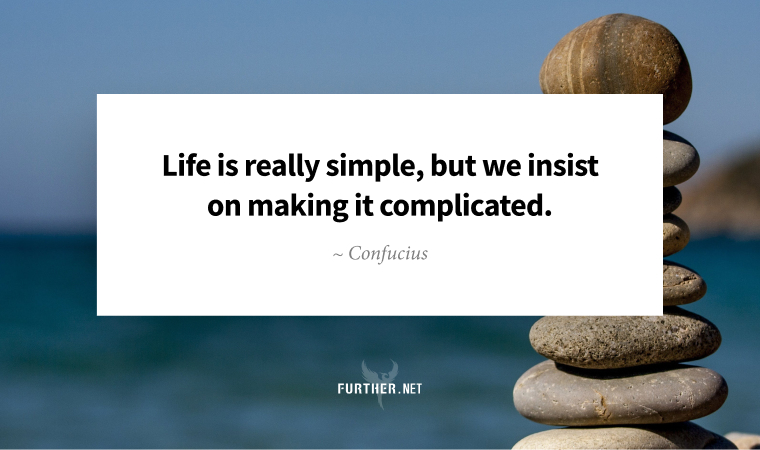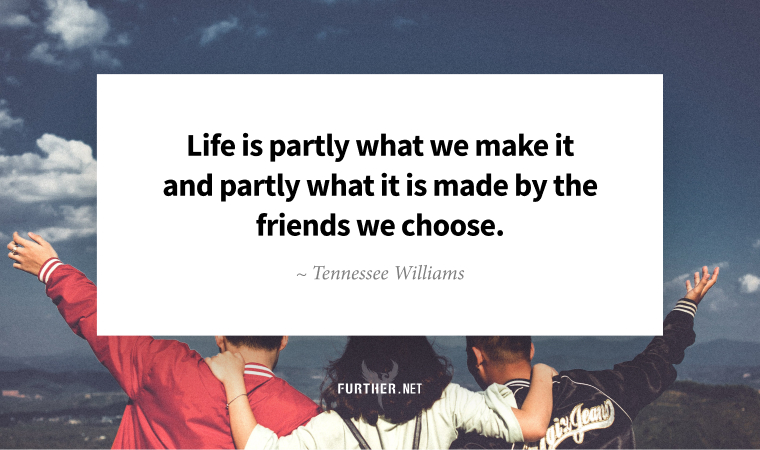
Everyone wants to live to 100 these days.
And the thing is, there’s a good chance you might. The number of centenarians has risen dramatically in the last 50 years, and will become even more common going forward.
So of course, there’s now an entire industry centered around longevity and healthy aging. In addition to scores of books and podcasts, there’s an array of strange stuff you’re told you need to buy to live a long and healthy life.
Things like superfluous supplements, biological age assessments, blood transfusions, testosterone infusions, cryotherapy, and basking in infrared light.
You don’t see that stuff here at Further, because we’re not trying to sell you anything to help you live longer.
But we do tell you about the simple things that actually matter. And while there are expenses related to these practices, they’re just part of a healthy lifestyle, not some life-altering purchase decision for life extension.
The Further Longevity Trinity is simple:
- Exercise
- Nutriton
- Sleep
These are the primary core elements. Are there more? Yes, and the New York Times just released an article that lays out the “big three” plus four other key elements. Down below, Trudi goes into detail on one of them – the right friends and relationships.
Living a long life is simple, even if aspects of it aren’t always easy. Let’s not make it more difficult by adding dubious complication and unnecessary expense.
Further exploration:
The 7 Keys to Longevity (New York Times, gift article)
Keep going-
P.S. New to Further? Join us here.
Get a Lox on Health
“Fish is one of the few animal foods consistently linked to health benefits, and salmon is at the top of my list when I recommend fish to people,” said Dr. Dariush Mozaffarian. But choosing which type to eat for your health — sockeye or coho, wild or farmed — isn’t so obvious.
Just How Healthy Is Salmon? (New York Times, gift article)
The Bottle and the Damage Done
“The average liter of bottled water has nearly a quarter million invisible pieces of ever so tiny nanoplastics, detected and categorized for the first time by a microscope using dual lasers.” Ummm, I think it’s time to commit to reusable water receptacles.
Scientists Find About a Quarter Million Invisible Nanoplastic Particles in a Liter of Bottled Water (NBC News)
Slow and Low
Getting your resting heart rate at the slower and lower end should be part of your fitness goals. When you’re not exercising, your heart will beat between 60 and 100 times per minute. A low resting heart rate usually means you’re keeping yourself physically fit, and a higher resting heart rate means your heart has to work harder to pump blood through your body.
Ways Your Heart Rate Can Predict Your Future Health (Health Digest)
Retirement is Tired
Whether you think of your job as “high powered” or not, it’s probably a big part of your purpose and identity. These tips can help anyone decide what’s next after the the current gig, and the most interesting thing about the transition is that there is no mention of golf, retirement communities, or lounging around.
The Challenges of Retiring from a High-Powered Job (Harvard Business Review)
Review Your Friends, Renew Your Life

By Trudi Roth
Great news for longevity seekers: the New York Times has once again affirmed that there’s no need to biohack your way to a longer life span and healthspan with their seven evidence-backed secrets to longevity. Unsurprisingly, the list includes moving daily, eating primarily plant-based foods, not drinking (much) or smoking (at all), managing chronic conditions, prioritizing rest, and having a positive mindset.
As a Further reader, you’re already thinking about these things and are likely making informed choices all the time. But chances are the seventh key to longevity — your relationships — don’t get the same scrutiny.
Is there an energy vampire or “chaotic friend” in your life? If so, it’s time to be your own BFF and consider making changes.
When “Good” Friends Suck
There’s plenty of persuasive research that shows the importance of friendship for your health and well-being. Witness the landmark Harvard Study of Adult Development that spans more than 80 years and its compelling core finding:
Close relationships, more than money or fame, are what keep people happy throughout their lives, the study revealed. Those ties protect people from life’s discontents, help to delay mental and physical decline, and are better predictors of long and happy lives than social class, IQ, or even genes.
But what if some of your close relationships aren’t so healthy? Research shows friends you’re ambivalent about can have negative health impacts, like increasing your anxiety and blood pressure while draining your emotional reserves. While setting better boundaries can help, you might need to rethink those relationships completely.
It’s Time for a Buddy Check
Start by doing an audit of your friendships. Therapist Nedra Glover Tawwab, author of Set Boundaries, Find Peace, recommends considering the good (i.e., people who look forward to being with and who make you feel happy and heard), the bad (i.e., those whom you drag your feet in responding to or blow off entirely), and the ugly (i.e., people who make you feel annoyed, upset, or exhausted to a point where you need a nap or Silkwood scrub after seeing them).
While those who energize you are clearly keepers, the rest deserve deeper consideration. According to psychologist Alexandra Solomon:
If you’ve discovered a few energy vampires — not a clinical term, by the way — you’ll need to determine whether or not those friendships are worth keeping.
Some you’ll decide to let go of, while others may be deserving of preserving. In those cases, be strategic: you can find ways to be healthier in those relationships, like focusing on the positives and choosing activities that minimize frustrating conversations and optimize enjoyment.
Finally, prioritize time with those who fill you up. Schedule visits, real and remote, as often as possible. That extra effort is the sign of a true friend.
Identify Your ‘Energy Vampires’ and ‘Chaotic Friends’ (New York Times, gift article)
further: flashback

The Smiths – Panic
Single, 1986
“Burn down the disco. Hang the blessed DJ,” was reportedly Morrisey’s actual reaction to hearing I’m Your Man by Wham! on the BBC. To drive home the point, he enlisted a children’s choir to gleefully sing with him on Panic — “Hang the DJ, hang the DJ, hang the DJ!” Yep, that’s going to be stuck in your head all day. (YouTube)
further: sharing
Enjoy this issue? Please forward this email with friends or share on social media.
Thank you for sharing Further!
